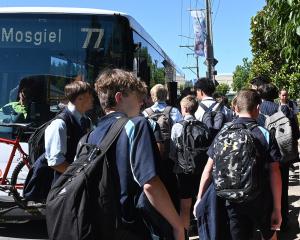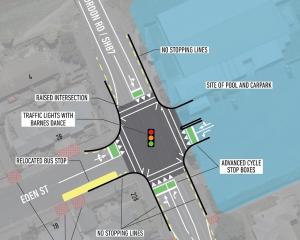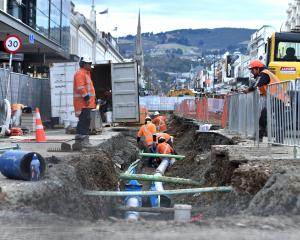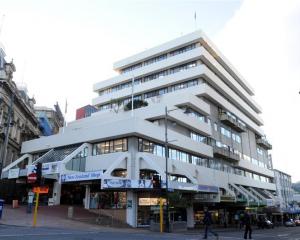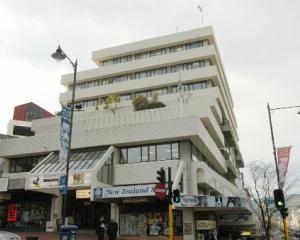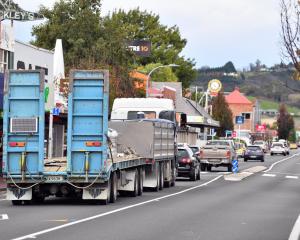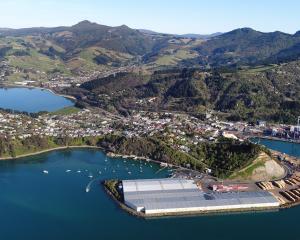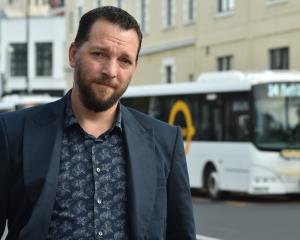The Dunedin City Council's caution - and confusion - over possible changes to the operation of buses in the central city is palpable.
After the parking debacle, where the council upset retailers, commuters, shoppers et al, the undertones of cavalier arrogance seem to have been suppressed.
Councillors, and one would hope council staff, know they must proceed with much more care.
The council's grand parking plan was not properly thought through.
Advice about hiked prices and expanded paid parking was advertised and featured in this newspaper.
But that alone is insufficient as a safeguard against decisions which were poorly considered.
Human nature means that most of those affected are relatively apathetic until change is actually upon them.
Publicity about a plan still many months from implementation often has little impact.
What that means is that policy-makers have to think thoroughly through implications themselves and not rely on feedback.
They also have to consult on specifics rather than in generalities. They have, for example, to give detailed information to particular businesses about what is planned for their part of the street.
As well is the related fact that the "devil is in the detail".
It was not just the prices and the paid-parking spread that upset, but matters like loading zones, the placement or lack of short-stay free parking, the actual length of stay allowed in key shopping areas, the location of long-stay parking for workers . . .
Issues of this nature came back to haunt the council in a backlash which must have shocked and surprised.
The excuse of "unintended consequences" used in the parking fiasco aftermath holds little sway.
While it is, indeed, impossible to predict everything that will result from complex changes, the whole point of planning is to examine in detail what are likely to be the consequences, both obvious and unintended.
Shrewd staff and wise councillors have to think acutely about possible repercussions from radical change.
They have to envisage themselves in the role of ratepayers, users and possible affected parties and work through what it is like to be different types of parkers, commuters, shoppers, bus patrons, businesses, visitors.
Then, of course, come the difficult judgement calls - knowing that change invites opposition, that absolutely all consequences cannot be envisaged, that there comes a time when elected councillors have to back their choices and push on through resistance in support of the greater good.
The council failed the parking test miserably.
Its grand plan fell apart, whereas incremental changes towards long-term goals would have been a much, much better option.
Policy could have been tested through the gradual spread of pay-and-display machines.
Once it was found the needs for paid parking were met, the extension could have ceased.
The ridiculous sight of close-to-the-city-centre streets lined with empty parks while frustrated commuters walked much greater distances, could have been avoided.
In scrambling to clean up the mess, the outcome has been a substantial improvement on the initial changes but remains an unsatisfactory hotch-potch on what might have been achieved.
And now the impulsive comments of councillors as they move to deal with one consequence - the problem of too many buses crowding the main street - engender little confidence.
It is early days and a joint working party with the Otago Regional Council has still to get down to details, but city councillors seem bewildered.
On the one hand there is talk of "blue-sky thinking" with options such as a bus transfer station away from George St, or the use of electric buses.
On the other is recognition that "solutions" could take 12 months.
In the meantime, there is the urgent problem created by the elongated bus stops on the block south of the Octagon and the trouble that has caused for businesses.
The consideration of fresh approaches is to be welcomed, especially from a council that initially failed to secure broad public confidence in several of its schemes, such as the stadium, rubbish disposal, the town hall improvements, and parking changes.
It needs to remember that Dunedin is a small city and radical solutions must be generally acceptable.
Part of the problem with the bus services is the disconnection between the principal users - city residents - and the administrator, the regional council.
The record with recent bus service " improvements" has been mixed at best, and attempts at new thinking - such as university and loop routes - have been unsuccessful and must weigh on the minds of decision-makers.
Would Dunedin bus users have the patience for transfer stations? It must be very doubtful.
Is there much to be gained by replicating innovation of the sort required in larger, congested centres? Councillors and their advisers need to keep in mind how buses are used and by whom, and build on that.
A little "hands-on" practical use experience would also help.
Concentration on the basic purpose of the buses and how bus users regard the services is required, while being open to fresh ideas - mixed with realism.


